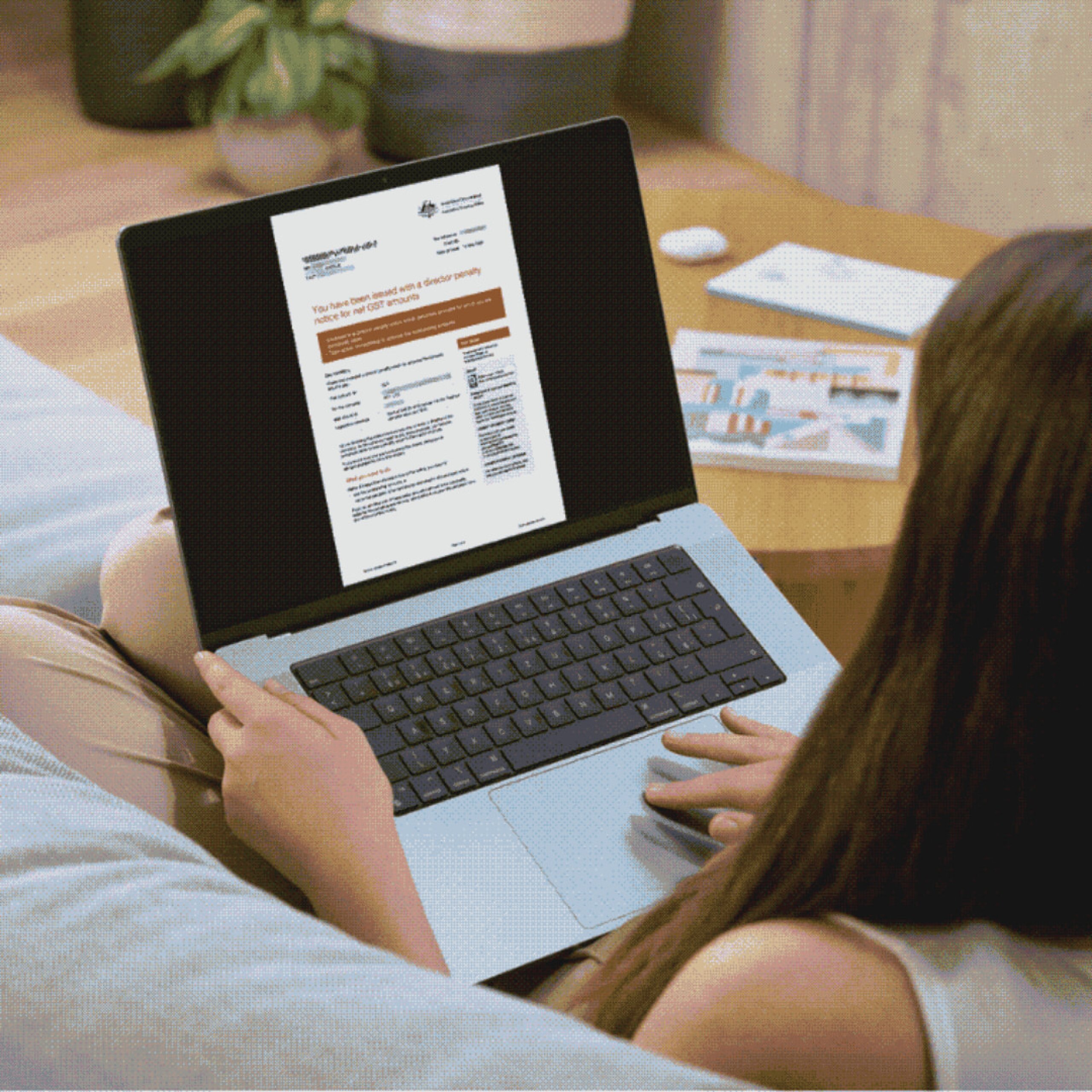As a company director, managing your business’s financial obligations can be overwhelming. One of the most significant risks you face is receiving a Director Penalty Notice (DPN) from the Australian Taxation Office (ATO). A DPN can make you personally liable for your company’s tax debts, and failing to act on time can have serious consequences for your financial future.
In this article, we’ll explore what a DPN is, why it’s issued, and what you can do to protect yourself if you receive one.
What is a Director Penalty Notice (DPN)?
A Director Penalty Notice (DPN) is a legal tool the ATO uses to recover unpaid company tax debts. Unlike most business debts, which remain the company’s responsibility, a DPN makes directors personally liable for specific tax debts, including:
Pay-As-You-Go (PAYG) withholding tax
Goods and Services Tax (GST)
Superannuation Guarantee Charge (SGC)
DPNs are designed to ensure directors actively address their company’s financial difficulties. Once issued, a DPN creates a parallel liability, meaning the debt is owed by both the company and its directors.
Why does the ATO issue DPNs?
The ATO issues DPNs to hold directors accountable when companies fail to meet their tax obligations. This usually happens when:
BAS, IAS or SGC returns are not lodged on time.
Tax debts remain unpaid despite warnings.
The company fails to comply with an ATO payment plan.
The ATO wants to prevent companies from accruing unmanageable debts and to ensure directors address their financial responsibilities.
Types of DPNs: 21-Day vs Lockdown
There are two types of DPNs, and each has different implications for directors:
21-Day DPN
Gives directors 21 days to act.
Action options include appointing a Small Business Restructuring (SBR) practitioner, voluntary administrator, or liquidator.
If you act within the 21-day period, you can avoid personal liability.
Lockdown DPN
Imposes immediate personal liability.
Applies to debts where BAS, IAS and SGC returns were lodged late or not at all.
The only way to address a lockdown DPN is to pay the debt in full.
Understanding which type of DPN you’ve received is critical, as it determines your available options.
How are DPNs Delivered?
The ATO sends DPNs by regular post to the director’s personal address listed with ASIC (not the company’s address). This means you may not receive the notice if your address is outdated.
Note that the DPNs are not sent to the ATO address for the director, or to the director's accountant or tax agent.
Once the DPN is mailed, the 21-day countdown begins—regardless of when or if you see it. If you suspect your company is at risk of receiving a DPN, regularly check your ASIC address and your ATO portal to stay informed.
Consequences of ignoring a DPN
Ignoring a DPN can lead to severe consequences:
Personal Liability
You become personally responsible for the tax debts listed in the notice.Bankruptcy
If you cannot pay, the debt may result in personal bankruptcy, affecting your financial future and professional reputation.Loss of personal assets
The ATO can pursue your personal assets, including your home, investments, and savings, to recover the debt.
Prompt action is essential to avoid these outcomes.
Steps to take if you receive a 21-Day DPN
If you receive a 21-day DPN, act quickly. You must take one of these steps within 21 days to avoid personal liability:
Appoint a Small Business Restructuring (SBR) Practitioner
This process allows you to restructure your company’s debts while continuing to trade.Appoint a Voluntary Administrator
An administrator takes control of the company to address its financial issues.Appoint a Liquidator
If the company is no longer viable, a liquidator can wind it up and handle its debts appropriately.
Get in touch with us and we'll guide you on your available options. This initial chat is free and confidential.
Crucial point: Failing to act within the 21-day window results in automatic personal liability for the tax debts.
What to do about a Lockdown DPN
A lockdown DPN is more restrictive. Because it applies to late-lodged or unlodged BAS, IAS and SGC returns, directors are automatically liable. The only way to address a lockdown DPN is to pay the debt in full.
If you’re unable to pay, seek professional advice immediately to explore refinancing options or strategies to protect your assets.
How to prevent DPNs
Taking proactive steps can reduce the risk of receiving a DPN:
Lodge BAS, IAS and SGC returns on time
Even if you can’t pay, lodging on time prevents debts from becoming lockdown DPN liabilities.Set up a complying ATO Payment Plan
The ATO is less likely to issue a DPN if you’re on a valid payment plan and meeting its terms.Update your ASIC address
Ensure your personal details with ASIC are current to receive important notices promptly.Seek early advice
If your company is struggling financially, consult with insolvency professionals before the situation escalates.
Real-life examples: How acting early saved a director
Consider Amanda, who received a 21-day DPN for $200,000 in unpaid BAS debts. By immediately appointing a Small Business Restructuring practitioner, Amanda avoided personal liability, successfully restructured the company’s debts, reducing them by about $140,000.
Contrast this with Tran, who hadn't updated his address at ASIC and therefore didn't receive the DPN issued to him. He only found out four months later that he was personally liable for $135,000 and therefore effectively couldn't reduce his ATO debt. This was because even if an SBR reduced his company's liability, he would still need to personally pay the full balance of the debt.
Key takeaways
Director Penalty Notices are a serious wake-up call for company directors, but they don’t have to result in personal financial ruin. By understanding the types of DPNs, why they’re issued, and what steps to take, you can protect yourself and your business.
If you’ve received a DPN or want to safeguard your company against future risks, contact us at Business Reset today. Acting early is the key to minimising liability and preserving your financial well-being.
Read next: 21-Day DPNs vs Lockdown DPNs: Key Differences and What They Mean for Directors
Or back to: Director Penalty Notices (DPNs): A Quick Guide for Company Directors



